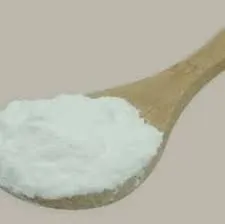The Evolution of API Manufacturing Challenges and Opportunities
Active Pharmaceutical Ingredients (APIs) are the cornerstone of modern pharmaceuticals, representing the biologically active component that provides the therapeutic effect in medications. As the global demand for effective and affordable healthcare solutions increases, API manufacturing has evolved into a critical sector within the pharmaceutical industry, characterized by innovation, regulatory challenges, and a continuous quest for efficiency and sustainability.
The Importance of API Manufacturing
The API manufacturing process involves a complex array of chemical reactions and purification steps designed to produce high-quality ingredients at scale. These ingredients must meet stringent regulatory standards set by organizations such as the U.S. Food and Drug Administration (FDA) and the European Medicines Agency (EMA). The importance of API manufacturing cannot be overstated; it is integral to ensuring that medications are effective, safe, and accessible to patients worldwide.
Market Dynamics
The global API market is witnessing significant growth, driven by increased pharmaceutical consumption, aging populations, and the rise of chronic diseases. A report from the Global API Industry Association predicts that by 2025, the market for APIs could exceed $250 billion. This growth is attributed not only to traditional pharmaceutical companies but also to biotechnology firms and generic manufacturers, which are increasingly engaged in API production.
However, the landscape is not without its challenges. The COVID-19 pandemic exposed vulnerabilities in the global supply chain, leading to shortages of essential APIs. Many pharmaceutical companies faced disruptions due to reliance on manufacturing facilities located in regions heavily affected by lockdowns. This situation highlighted the need for diversification in sourcing and manufacturing strategies to enhance resilience against future global crises.
Technological Advancements
Technological innovation plays a significant role in the evolution of API manufacturing. The adoption of advanced manufacturing techniques, such as continuous manufacturing, has revolutionized how APIs are produced. Continuous manufacturing allows for real-time monitoring and control of the production process, resulting in improved efficiency, reduced production costs, and enhanced product quality. This method also facilitates a faster response to market demand, allowing manufacturers to scale up or down as needed.
api manufacturing

Moreover, the integration of artificial intelligence (AI) and machine learning is transforming API development and manufacturing processes. These technologies can optimize chemical reactions, predict potential impurities, and streamline quality control practices, thereby accelerating the timeline from development to market readiness.
Regulatory Considerations
Regulatory compliance remains a significant concern in API manufacturing. Companies must navigate a labyrinth of local and international regulations, which can vary significantly from one region to another. The complexities involved in ensuring compliance can deter smaller manufacturers from entering the market. Besides, stringent guidelines surrounding quality assurance and control necessitate a continuous investment in training and infrastructure.
In response to these challenges, many companies are increasingly adopting more robust quality management systems. These systems utilize real-time data analytics to monitor the production environment and implement corrective actions swiftly, ensuring that the final API meets high-quality standards.
Sustainability in API Manufacturing
Sustainability has become a focal point in the pharmaceutical industry, with increasing pressure on manufacturers to reduce their environmental impact. API manufacturing processes are often resource-intensive, generating significant waste and emissions. Many companies are now exploring greener synthetic pathways, employing biocatalysts, and adopting circular economy principles to mitigate their environmental footprint.
The shift towards sustainable practices is not merely a regulatory requirement; it is increasingly becoming a competitive differentiator. Companies committed to sustainability can appeal to a growing base of eco-conscious consumers and stakeholders, thus enhancing their brand value and market position.
Conclusion
API manufacturing is at a pivotal point in its evolution, balancing the demands of an increasingly complex market with technological advancements and regulatory requirements. As the industry continues to innovate and adapt, embracing sustainability will play a crucial role in shaping its future. By addressing these challenges head-on, API manufacturers can not only enhance their operational efficiency but also contribute positively to global health outcomes and environmental sustainability, ensuring that they remain integral to the future of healthcare.

